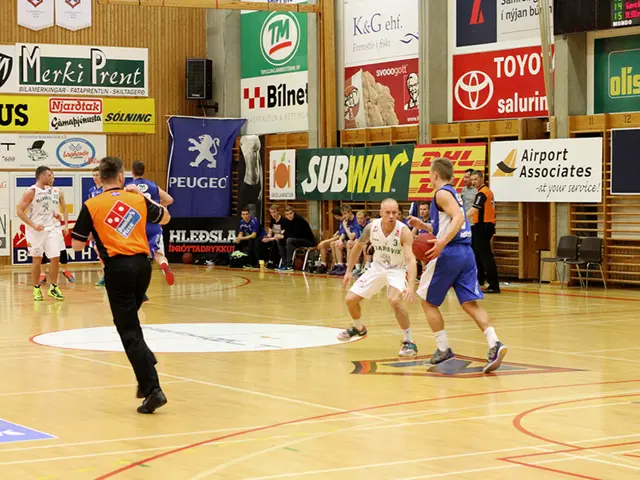In 2025, the Dallas Cowboys Dominate as Three NFL Clubs Reach $10 Billion Valuation
The National Football League (NFL) is witnessing a significant shift in its team valuations and ownership structures, thanks to the recent allowance of private equity (PE) firms to acquire minority stakes of up to 10% in NFL teams. This rule change, implemented in 2024, is driving historic franchise valuations and creating new financial dynamics around team sales and ownership liquidity.
According to recent reports, the average NFL team is now worth a staggering $7.13 billion, up 20% from a year ago. This surge in values has seen some teams break the $10 billion barrier, with the Dallas Cowboys leading the way at a valuation of $12.8 billion, up 24%. Last year, the Los Angeles Rams and New York Giants became the second and third teams to top the $10 billion barrier, respectively.
The Cincinnati Bengals remain the least valuable team, with a worth of $5.5 billion. However, even the Bengals have seen a 20% increase in value compared to last year. The collective worth of the 32 franchises now stands at an impressive $228 billion, including team-related businesses and real estate.
The influx of private equity capital allows teams to sell minority stakes without giving up controlling ownership. This has increased the liquidity and marketability of teams, providing owners with new ways to raise capital which can be used for stadium improvements, operations, or other investments. The presence of PE also adds financial sophistication and potentially accelerates franchise growth and revenue optimization.
In terms of team sales, the entry of PE firms is expected to create a more active minority stake market in NFL teams, allowing owners to monetize parts of their holdings without selling the entire franchise. This trend is still evolving, but it is seen as a way to inject capital at high valuations while maintaining local or traditional control. Unlike in college sports, where PE involvement is largely lending without ownership stakes, the NFL is pioneering minority equity deal structures which could influence how future sports franchise ownership evolves.
Recent notable examples include Egon Durban, co-CEO of Silver Lake, and Michael Meldman, founder of Discovery Land Company, who bought a combined 15% of the Las Vegas Raiders for $6.5 billion. Individuals also purchased 10.6% of the Buffalo Bills and 6.2% of the San Francisco 49ers.
The NFL's revenue is well ahead of the pace needed to meet commissioner Roger Goodell's 2010 revenue target of $25 billion by 2027. The league generates an estimated $22.2 billion in revenue, including net revenue from non-NFL events. The guaranteed annual check from the league office ensures that no team can lose money operating a team, with the salary cap at $255 million and each team also responsible for $74 million in benefits.
The average revenue per NFL team is $692 million, with the majority, $460 million, coming from media, sponsorships, licensing, and ticket revenue. The league is also considering moving to 18 regular-season games, which would result in more stadium revenue and likely another week of TV rights fees.
Despite the increased value, the average estimated team profit was $151 million, with the range being $80 million for the 49ers to $490 million for the Cowboys. The Cowboys posted more than twice as much profit as any other team, with only the Rams within 50% of the Cowboys' $820 million in local revenue.
The NFL has opened its league to institutional investors with more restrictions than other major U.S. leagues. The average NFL ownership tenure is 41 years, with a median of 31 years, suggesting that the new PE rules might lengthen that tenure by solving generational issues. The NFL, NBA, and MLB have not expanded in more than 20 years.
In summary, the NFL's allowance of up to 10% PE ownership stakes is a recent and significant development driving historic franchise valuations and creating new financial dynamics around team sales and ownership liquidity. This is a growing trend expected to continue as PE firms seek to invest alongside existing owners in these high-value sports assets.
- The influx of private equity capital has opened new financial avenues for NFL team owners, allowing them to raise capital by selling minority stakes without giving up controlling ownership.
- The recent rule change in the NFL, permitting private equity firms to acquire up to 10% minority stakes, has led to a surge in valuations of real estate properties associated with sports teams, such as football stadiums and practice facilities.
- As private equity firms increasingly invest in team ownership and minority stakes in major American football leagues like the NFL, the landscape for team sales and financial dynamics around sports franchises is poised to experience further transformations.








